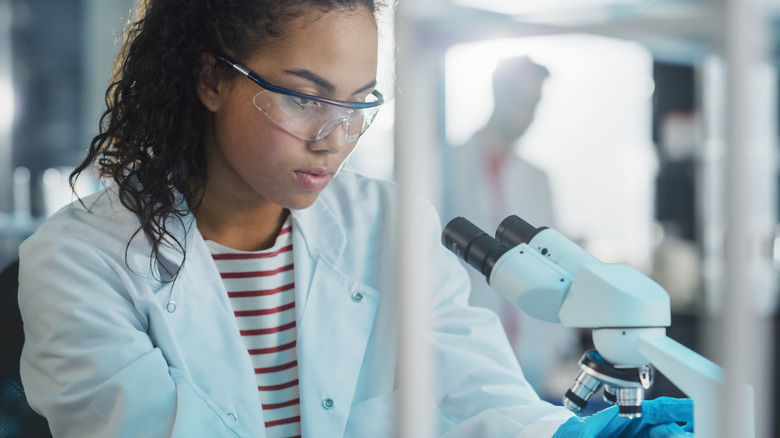Donating Your Body To Science? Funeral Planning Expert Tells Us What Your Family Can Expect
Many difficult decisions need to be made when a loved one dies. To help aid in the process, the National Institutes of Health (NIH), among other financial experts and healthcare providers, recommend timely and thorough end-of-life planning. That way, when the time comes, your death and your remains will be handled according to your wishes. Through comprehensive planning of that sort, less pressure will be put on those closest to you to make choices on your behalf in their time of grief. One decision some people make is to donate their body to science after death.
No official numbers exist as to how many people choose to donate their bodies to science in their end-of-life planning process. But based on most estimates, as many as 20,000 people who die in the United States each year go that route. What exactly does it mean to donate your body to science, though, and how will it affect the funeral or memorial planning process — not to mention the lives of your friends and family after you've died? In an exclusive chat, Grunge checked in with funeral planning expert Jessica Koth, director of public relations at the National Funeral Directors Association (NFDA), to find out more.
Donating your body to science can save lives
According to Research for Life, a whole-body donation advocacy organization that helps facilitate the donation of bodies to science, there are a number of important reasons to choose to donate your body to research after death. Among other points to consider, your body and organs could be a part of ongoing medical research that saves lives, and they might also help the doctors and surgeons of tomorrow hone their skills. But according to funeral planning expert Jessica Koth, NFDA's director of public relations, the choice to donate your body will greatly affect the funeral planning process.
In an exclusive Grunge interview, Koth says generally speaking, "When an individual donates their body for medical research, the institution must immediately take the decedent into their care," which means that families and friends cannot view the body after death. "The family can, however, work with a local funeral home to plan a memorial gathering to honor their loved one," she says. It can also take up to two years to receive the cremated remains of your loved one, but many institutions can provide your friends and family a specific timeline, Koth points out. Because of that fact, she says you "may not be able to have their cremated remains present during the memorial service."
Before deciding to donate your body, it's important to do your research
In her exclusive Grunge interview, Jessica Koth says before making the choice to donate your body, whether for medical students who are learning how to better help their patients or to aid a scientist in understanding a difficult subject, "It's important to be careful when selecting an organization to donate it to." Comprehensive lists of institutions accepting whole-body donations exist online from the Interactive Estate Document Systems (IEDS), among other sources. Koth adds that specific institutions also often "have comprehensive websites full of information; they also have people on staff who are ready to answer questions from potential donors."
If you'd like your donation to go to a specific research program, university, or hospital, Koth recommends contacting that organization directly to first find out if they have a whole-body donation program. Many whole-body programs accept donations from out-of-state. More than anything, though, if body donation is something you're interested in learning more about, it's important to discuss your options with a licensed funeral director. "Making decisions about where your body will be donated — and filling out any necessary paperwork with the institution, and making plans for your memorial gathering beforehand — will save your loved ones from having to make difficult decisions while they are grieving," Koth says.


